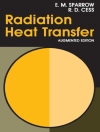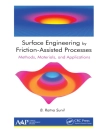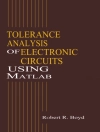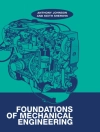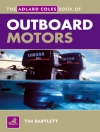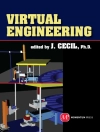This book focuses on the two-phase flow problems relevant in the automotive and power generation sectors. It includes fundamental studies on liquid–gas two-phase interactions, nucleate and film boiling, condensation, cavitation, suspension flows as well as the latest developments in the field of two-phase problems pertaining to power generation systems. It also discusses the latest analytical, numerical and experimental techniques for investigating the role of two-phase flows in performance analysis of devices like combustion engines, gas turbines, nuclear reactors and fuel cells. The wide scope of applications of this topic makes this book of interest to researchers and professionals alike.
Зміст
Review of an Eulerian-Lagrangian Spray Atomization model for nozzle flow and near-field Diesel spray modeling.- Multiphase flow and its application in water management and harvesting in fuel cells.- Spray Collapse in a Multi-hole GDI Injector and Its Effect on In-Cylinder Combustion.- Ferrofluids for Propulsion.- Coolability of heat-generating porous debris beds in severe accident situations.- On the Choice of Numerical Techniques for the Simulation of Two-Phase Flow Interactions in the Energy and Automotive Power Systems.- Modeling and analysis of steam-water direct contact condensation.- LES and DNS of multiphase flows in industrial devices: application of high.- performance computation.- Multi Scale Eulerian-Lagrangian approach for modelling of atomization- Algorithm, potential and future scope.- Recent Progress in Primary Atomization Model Development for Diesel Engine Simulations.- Droplet Impingement and Evaporation on a Solid Surface.- Film boiling heat transfer on simple geometry: numerical and scale analysis.- Modeling of high pressure fuel injection in internal combustion engines.- Modeling of cavitation phenomena for high pressure diesel injectors.- Simulation of spray combustion using tabulated chemistry.- Simulation of biodiesel blends under Spray A conditions.- Film boiling in the context of severe accident.
Про автора
Kaushik Saha is an Assistant Professor at Centre For Energy Studies in IIT Delhi. He was previously working at Bennett University, India as Assistant Professor. Prior to that Dr. Saha worked at the Energy Systems Division of Argonne National Laboratory, USA. He completed his MS and Ph D in Mechanical Engineering from the Universities of Connecticut and Waterloo respectively. His research interests are flash boiling for gasoline injectors (GDI), cavitation in fuel injectors, spray atomization and droplet evaporation, advanced combustion strategies for internal combustion engines, urea SCR for NOx reduction and material processing in thermal plasmas. He is a member of Institute for Liquid Atomization and Spray Systems, Society of Automobile Engineering, American Society of Mechanical Engineering, Canadian Institute of Combustion Science, Combustion Institute, US and has authored 11 journal articles, 19 conference articles and 1 book chapter.
Avinash K Agarwal is a Professor in the Department of Mechanical Engineering in Indian Institute of Technology Kanpur. His areas of interest are IC engines, combustion, alternative fuels, conventional fuels, optical diagnostics, laser ignition, HCCI, emission and particulate control, and large bore engines. He has published 24 books and 230+ international journal and conference papers. Prof. Agarwal is a Fellow of SAE (2012), ASME (2013), ISEES (2015) and INAE (2015). He received several awards such as Prestigious Shanti Swarup Bhatnagar Award-2016 in Engineering Sciences, Rajib Goyal prize-2015, NASI-Reliance Industries Platinum Jubilee Award-2012; INAE Silver Jubilee Young Engineer Award-2012; SAE International’s Ralph R. Teetor Educational Award-2008; INSA Young Scientist Award-2007; UICT Young Scientist Award-2007; INAE Young Engineer Award-2005.
Koushik Ghosh is a Professor in the Mechanical Engineering Department in Jadavpur University, India, and has previosuly worked as a scientificofficer in the Reactor Safety Division in Bhabha Atomic research Centre, India. His research include heat transfer, multiphase flow, boiling and condensation, and transport in porous media. He has published more than 2 book chapters and 80 research articles in journals and national and international conferences.
Dr. Sibendu Som has over a decade of experience in enabling technologies for more efficient engine combustion using computational tools. He leads a CFD team at Argonne National Laboratory with research focus on the development of nozzle-flow, spray, and combustion models, using HPC tools for piston engines and gas turbine applications. His team is responsible for developing predictive simulation capabilities for OEMs to develop advanced high-efficiency low-emission engines. He is a co-founder of Argonne’s Virtual Engine Research Institute and Fuels Initiative (VERIFI) program which is aimed at providing predictive simulations for OEMs. Dr. Som has authored more than 110 journal and peer-reviewed conference papers with more than 3100 citations.


